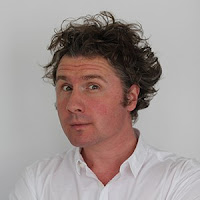 |
| Ben Goldacre |
The experience of listeing to Goldacre must be what it was like taking a machine gun nest in the Second World War: a spray of words and ideas delivered at high speed with the occasional grenade tossed in. He clearly keeps a single massive PowerPoint for these occasions into which he delves, fast forwards and then focuses on whatever point he wants to make that day. Inevitably (and I imagine always) he runs out of time. He will have had to be more disciplined for his TED talk Battling bad science as these require rehearsal and precision in front of TED advisors according to Ted Talks: the Official TED Guide to Public Speaking.
Goldacre's crowning achievement and the mission he now preaches about is the All Trials Campaign which is a significant effort to force clinical triallists - especially those involved with pharmaceutical companies - to present all their data according to the original protocol and to publish the trials which were in favour of the control group. Most reputable journals are signed up to this.
However, this is not the place to rehearse all that Ben Goldacre has said in any of his books or blogs; instead - what callenged me this week? Goldacre asked how many of us were full-time editors and I think there was only one feeble effort to raise a hand. His point was to ask how many of us carried out the vital task of scrutinising research, some of it using RCTs, when we had so many competing demands as academics and clinicians. On the other hand, he asked what we were being paid for (albiet that some of us are not paid*), if we did not scrutinise the science we publish - especially RCTs on which major purchasing and prescribing decisions are made. It is obvious that many trials are not publshed according to protocol, i.e. they report secondary outcomes without declaration, and even when they do report trials accurately on offical websites such as ClincalTrials.gov that they then do not publish them accurately (honestly?) in journals. It also seems, from a study that Goldcare has conducted, that some leading medical journals (he praised the BMJ, was lukewarm about The Lancet and less enthisiastic about JAMA and NEJM and AIM) are less than willing to have the extent to which they are complying with the highest standards or reporting RCTs pointed out and to publish related correspondence.
 |
| Richard Gray |
I don't think that there will be a massive movement away from publishing RCTs - after all, who would go first and risk the loss of good articles, citations and the contribution to journal impact factor while others persisted? But I do think most of the editors present will now be considering how we can publish RCTs better and also audit that we are doing it better.
* I wish to declare that I am supported financially by Wiley for my work with Journal of Advanced Nursing and Nursing Open
You can listen to this as a podcast